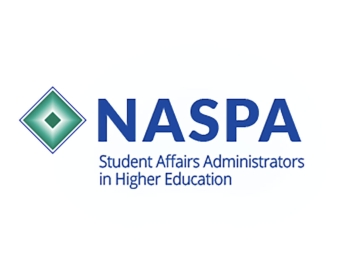2019 European Conference for Student Affairs and Services
Regional Annual Conferences Supporting the Profession Global Division
October 28 - October 30, 2019 Lugano, Switzerland
NASPA – Student Affairs Administrators in Higher Education, EucA – European university college Association, invite you to submit programs for the European Conference on Student Affairs and Services, to be held at Franklin University Switzerland, 28-30 October, 2019. This conference provides a platform for student services professionals, academics, researchers, and policy makers to discuss innovative programs, practices, models and trends in student affairs.
This three-day conference will bring student affairs and services practitioners together to network, share promising pracitices, and develop tool to ensure student success and employability.
Presented By

Call for Programs
NASPA – Student Affairs Administrators in Higher Education and EucA – European university college Association, invite you to submit programs for the European Conference on Student Affairs and Services, to be held at Franklin University Switzerland, 28-30 October, 2019. This conference provides a platform for student services professionals, academics, researchers, and policy makers to discuss innovative programs, practices, models and trends in student affairs.
The priority deadline for proposals is Tuesday, 23 July, 2019.
Notification: Presenters whose proposals are accepted must register for the conference. Acceptance will be confirmed by the Organizing Committee by no later than Wednesday, 14 August, 2019.
Regular program proposal deadline is 4 September, 2019.
Presenters will be expected to pay registration and other related fees associated with attending the conference. All presenters will be expected to provide an electronic copy of their presentation which will be posted on the conference website for participants to view at the conclusion of the conference.
Conference Themes and Suggested Topics
Global Mobility
Since the late 80s, when student exchange programs started to scale, internationalization shifted from niche initiatives to comprehensive strategies. In the European Higher Education Area, for example, the target is to have 20% of graduates have a mobility experience by the end of their studies by the year 2020. Globally, with its flow of knowledge, people, technology and more, globalization highlights how institutions need to rethink their internationalization initiatives and strategies to ensure access is more inclusive, quality and support are preserved, and innovation is encouraged at all levels. How can student affairs professionals navigate the internationalization wave?
The conference planning committee invites you to submit conference program proposals that will:
-
Define evidence-based practices regarding “internationalization-at-home” initiatives that prepare all students to live and work across differences and in an interconnected world.
-
Identify best practices for supporting international and inbound students to successfully navigate the local community.
-
Establish a network of colleagues with whom to create short-term mobility opportunities or exchanges for students.
-
Explore the advantages of intercultural experiences for students, institutions, and beyond.
Mental Health and Well-being
Institutions of higher education around the world are experiencing a wave of incoming students who present with diagnosed health and well-being concerns. trend. With culture and language differences, studying in a different country can present unique challenges for these students.
The conference planning committee invites you to submit conference program proposals that will:
- Define holistic student well-being and its relationship with student success in higher education.
- Define current mental health conditions (e.g. depression, substance abuse, etc.) which represent challenges to student success and well-being.
- Identify collaborative models between service practitioners (qualified mental health professionals) on campus and within communities.
- Enhance mezzo- and macro-level strategies to enhance student resilience.
- Discuss replicated return on investment from resources dedicated to mental health services, programs, policies, and environmental designs.
-
Discuss cultural design of health promotion within all job functions and roles at an institution of higher education.
Employability and Career Services
Employability studies around the world demonstrate that graduates are not leaving the university environment with the many of the skills valued by employers. Teamwork, leadership skills, resilience, and dealing with conflict are some of the most sought after skills by most employers. Student affairs educators must work collaboratively across the institution to improve outcomes resulting from both inside and outside of the classroom learning.
The conference planning committee invites you to submit conference program proposals that will:
- Articulate and utilize the concepts of career readiness to improve student employability following graduation.
- Learn evidence-based, career services practices to assist students to leverage international experiences for finding internships and professional positions.
- Understand the various ways institutions document learning, both inside and outside of the classroom.
- Identify successful career search approaches for international and limited job markets and navigating the bureaucracy involved with an international career search.
- Demonstrate how effective programs can tighten the graduate skills gap in order to improve international mobility and employability.
Residential Life and Student Engagement
How can student affairs work with intentionality to expand the out-of-classroom experience for all students? What are some promising practices in building a residential curriculum to ensure meaningful learning that goes beyond attendance? How to build a culture of assessment in residential life? These questions are meant to guide the discussions of news trends and challenges in student learning and engagement in residential settings.
The conference planning committee invites you to submit conference program proposals that will:
- Identify initiatives that increase and deepen students’ participation and engagement in educational programs on campus or residential halls
- Understand that documenting learning in residential settings or informal learning programs improves overall student success
- Describe how involving student leaders on campus or residential halls expands student learning (for e.g., tutors, orientation mentor, resident assistant, academic mentor etc.)
- Explore strategies to build intentional learning environments and/or living-learning communities
Schedule
Oct 28
Oct 29
Oct 30
9:00 AM - 12:00 PM
Registration
1:30 PM - 2:30 PM
Opening Session
2:50 PM - 3:40 PM
Concurrent Session
3:50 PM - 4:40 PM
Concurrent Session
4:40 PM - 5:00 PM
Break
5:00 PM - 5:50 PM
Concurrent Sessions/Plenary
6:00 PM
Opening Reception and Dinner
9:00 AM - 10:15 AM
Morning Plenary Session
10:30 AM - 11:20 AM
Concurrent Sessions
11:30 AM - 12:20 PM
Concurrent Sessions
12:20 PM - 2:00 PM
Lunch
2:00 PM - 3:15 PM
Afternoon Plenary
3:15 PM - 3:40 PM
Break
3:45 AM - 4:35 PM
Concurrent Sessions
4:45 PM - 5:35 PM
Concurrent Sessions
9:00 AM - 9:50 AM
Roundtable Sessions
10:00 AM - 10:50 AM
Concurrent Sessions
11:00 AM - 11:50 AM
Concurrent Sessions
12:00 PM - 1:30 PM
Closing Lunch
Registration
We invite you to register for the 2019 European Conference by clicking the link below. Please note that you will be redirected to the EucA site. Please note that prices are listed in Euros (€)
Registration |
||
| Early-Bird before 09/13/19 |
Regular 09/14/19 to 10/09/19 |
Late after 10/10/19 |
Euca/NASPA Member |
||
| 400€ | 450€ | 500€ |
Non-Member |
||
| 500€ | 550€ | 600€ |
Pre-Conference |
||
|
75€ |
85€ | 95€ |
Venue

Franklin University Switzerland
Lugano, Switzerland
Franklin University Switzerland, located in beautiful Lugano, Switzerland has graciously agreed to serve as our host.
There are many beautiful hotels near the FUS. Please visit the university website to find the best accomodations for you.
Malpensa Airport, located in Ferno, VA, Italy is the closest airport to FUS. Please download this transportation guide for more information.
Pre-conference Programs & Events
Cross-Cultural Simulation Workshop
During the pre-conference workshop participants will experience the intercultural simulation BAFA BAFA. The workshop includes an experiential learning opportunity as well as a de-briefing session that will incorporate relevant and practical suggestions on how to use this tool with student leaders and others who are involved with study abroad groups; multicultural and diverse residential communities; mentoring, coaching, inclusion, orientation programs as well as FYE classes.